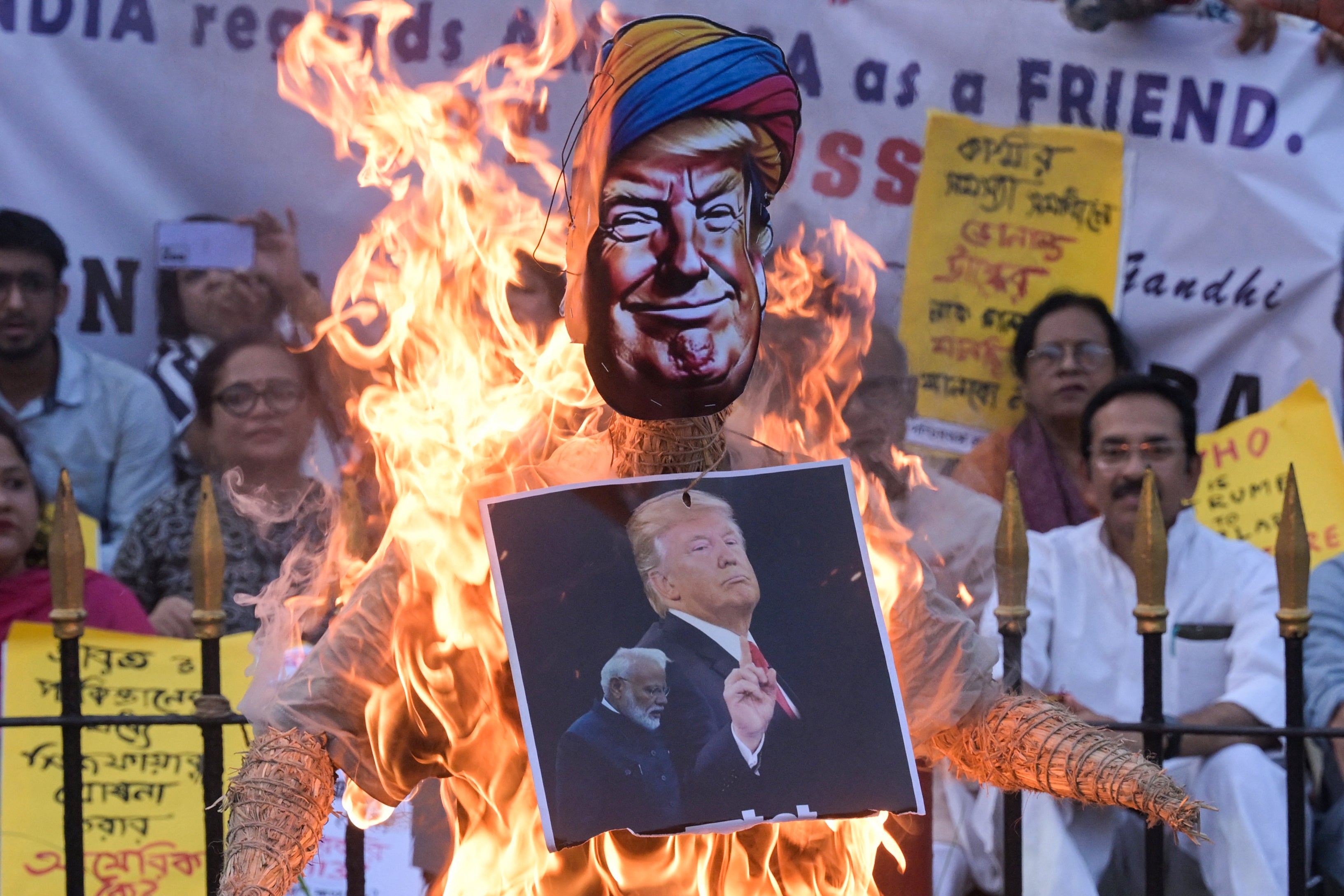The Pakistani government’s support for Donald Trump’s personal quest to win a Nobel Peace Prize has caused a political firestorm in the country, with many calling on prime minister Shehbaz Sharif to rescind the nomination in the wake of the US bombing of Iran.
Opposition leaders, activists, and civil society members have denounced the nomination of the American president for the prestigious peace award as an act of “crass flattery” and national humiliation.
Just hours before the US bombed Iranian nuclear sites, Pakistan had nominated Mr Trump for his “legacy of pragmatic diplomacy” and “pivotal leadership” that led to the de-escalation of the India-Pakistan military confrontation in May.
Less than 24 hours later Islamabad condemned the US for attacking Iran, calling it a “serious violation of international law” and the statutes of the International Atomic Energy Agency.
Mr Sharif even called Iranian president Masoud Pezeshkian to express his concern over the US bombing that targeted facilities safeguarded by the UN atomic watchdog.
Its nomination of the US president for the peace award has put Pakistan in an awkward diplomatic position. Islamabad has staunchly and consistently supported the Palestinian cause and stayed firmly on the side of its neighbour Tehran throughout its conflict with Israel.
Pakistan declared its “unequivocal and unambiguous” support to Iran, which was the first to recognise its new neighbouring nation after it was formed in 1947.
Maleeha Lodhi, Pakistan's former ambassador to the US, criticised the support to Mr Trump as "unfortunate", saying it undermines the country’s dignity.
"A man who has backed Israel's genocidal war in Gaza and called Israel's attack on Iran as 'excellent'," she wrote on X. "It compromises our national dignity.”
She later said the Pakistani government should be “ashamed of this ill-conceived move” and should now have the “decency to revoke that decision”.
Maulana Fazlur Rehman, a senator from the conservative Jamiat Ulema-e-Islam party, condemned the nomination as morally indefensible.
"Mr Trump has supported the Israeli attacks on Palestine, Syria, Lebanon and Iran. How can this be a sign of peace?” he asked.

Jamiat Ulema-e-Islam senator Kamran Murtaza on Monday submitted a resolution in the Senate to demand the withdrawal of the nomination.
“The Senate of Pakistan urges the Federal Government to rescind and withdraw its decision recommending US President … after bombing Iran by the USA on the orders of its President in violation of international law, interfering in the sovereignty of Iran, resulting several casualties also, as one of the concern of human rights, disturbing the peace in the region,” the motion read, according to Dawn.
Former senator Mushahid Hussain echoed the criticism on social media, writing that Mr Trump had “willfully unleashed an illegal war” and “fallen under the influence of Israel’s PM Benjamin Netanyahu”.
He urged Pakistani authorities to “review, rescind and revoke” the nomination while accusing Mr Trump of “presiding over the decline of America”.
Mr Trump “engaged in deception and betrayed his own promise not to start new wars”, Mr Mushahid said in another post, strongly condemning the US attack on Iran.
Another former senator, Mustafa Nawaz Khokhar, called the nomination “crass flattery”.
“Since Trump was already appreciative of Pakistan’s role in India and Pakistan conflict, I don’t know what was the need for nominating Trump for the Nobel Peace Prize,” he said.
Civil society figures weighed in, with activist Noor-e-Maryam Kanwer, saying: “Duality has been Pakistan’s long term policy.”
“At a time when the US is supporting the genocide of Palestinian people and Israel’s bombing of Iran, Pakistan is nominating Trump for Nobel Peace. Pakistan, hence proven once again will remain a rentier state,” she added.
Pakistan’s nomination of Mr Trump came shortly after its powerful army chief Asim Munir met the US president for lunch at the White House.
The meeting lasted more than two hours and was also attended by US secretary of state Marco Rubio and US special representative for Middle Eastern Affairs Steve Witkoff.
The meeting was seen as a diplomatic victory for Islamabad as the military chief had been invited soon after Pakistan fought a limited military engagement with India. The four-day conflict began after India launched airstrikes on Pakistan, blaming it for a terror attack in the restive Himalayan region of Kashmir that killed 26 people, mostly Hindu tourists, in late April.
Mr Trump later claimed he had mediated a ceasefire between the two rivals to end hostilities. India denies the US played a role in the ceasefire talks.
Pakistan, however, continued to thank Mr Trump for the ceasefire, saying he demonstrated “great strategic foresight and stellar statesmanship” to engage with Islamabad and New Delhi.






